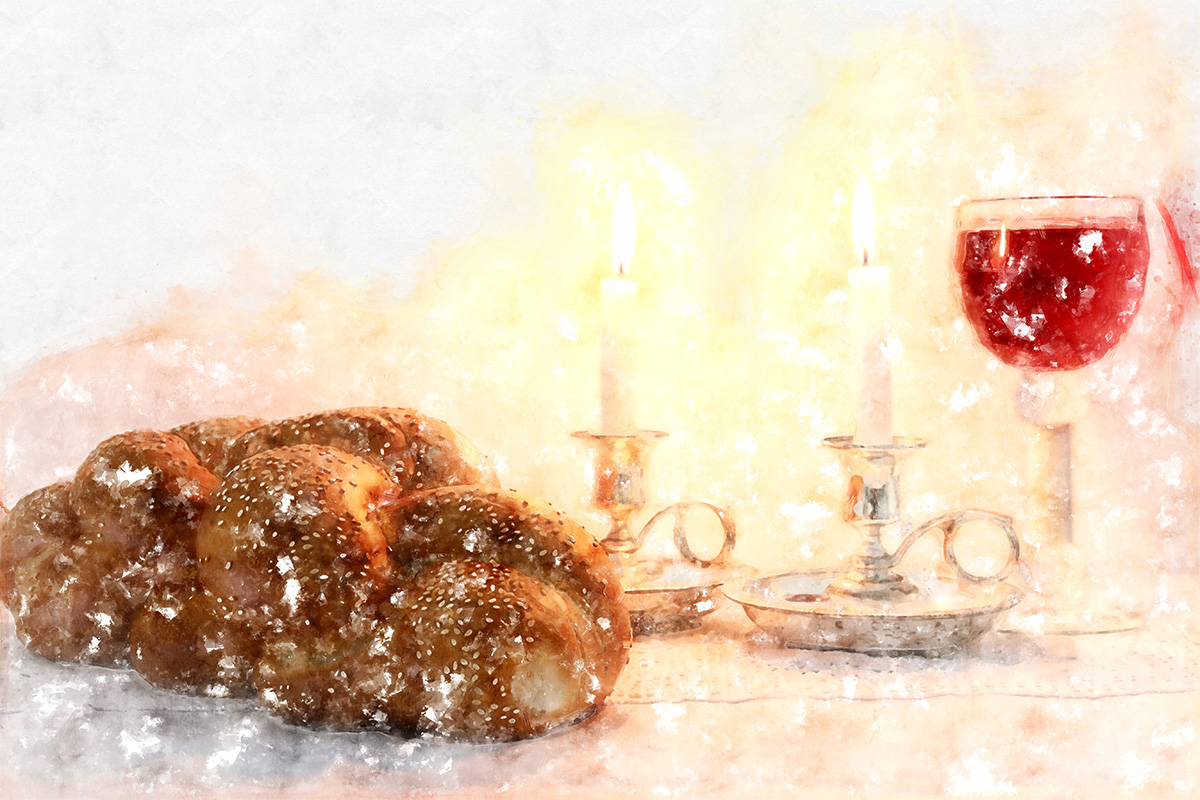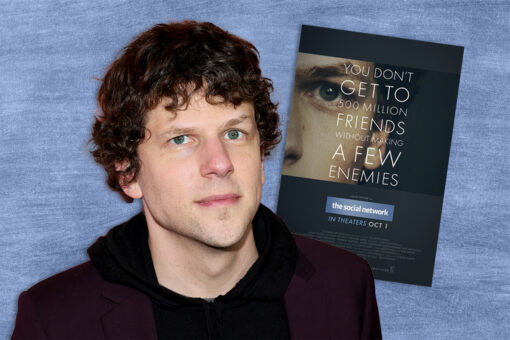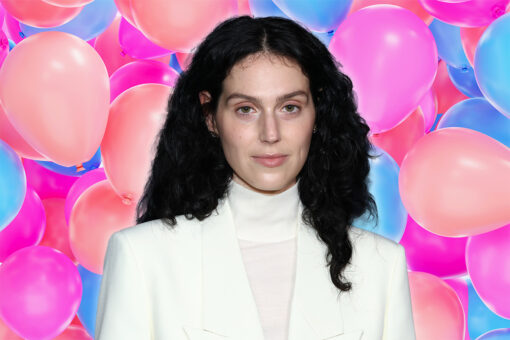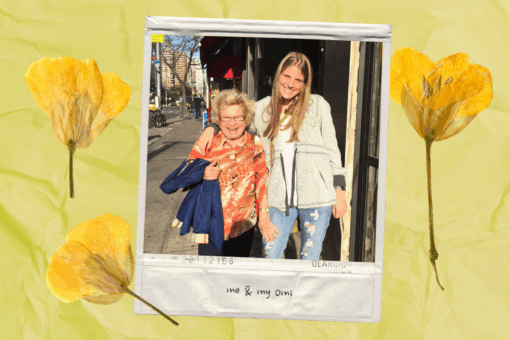Growing up interfaith, there was always this overwhelming feeling that I wasn’t enough in Jewish spaces. My father was the one who was Jewish. I didn’t go to temple very often. I never had a bat mitzvah. I didn’t belong.
“But!” I would internally argue with myself. “I went to temple preschool, my dad’s side of the family is Israeli, I liberally pepper Yiddish phrases into conversations. Surely, I count.”
I want to make it clear that those insecurities did not come from my family. While there were jokes about my safta asking my dad, “Why a Catholic?” when he first introduced my mom to his parents, I never felt that tension growing up.
I loved my full, interfaith upbringing. Around the winter holidays, we’d light the menorah, decorate the tree, spin the dreidel and eat our latkes with eggnog on the side: the full Seth Cohen Chrismukkah brought to life. When other people asked about my religion, I would say I was Jewish and Catholic and that made perfect sense to me.
I became more distanced from formal traditions in college. Still, I’d make matzah ball soup for friends who were sick, promising the healing benefits of “Jewish Penicillin,” and got more excited than I should admit when I found my first ugly Hanukkah sweater. These small moments built. I started finding myself more and more in my own Judaism. On a trip to Israel, I visited the Western Wall and felt a deep spiritual connection to this place where my family is from. I started writing an undeniably Jewish book about a teenager connecting to her faith and culture.
And then the pandemic happened. It’s not unique to say that everything was in complete disarray. At the time, I was living in a small Brooklyn apartment. I had just adopted my dog, a mini Bernedoodle rescue who was struggling with some health issues that meant neither of us were getting much sleep. In a joyful moment among so much struggle, I found out my book was going to be published. Worried about my family and their health and the general state of the world, I decided not to renew my lease. I could write anywhere, I argued. This was all temporary.
And so my now much healthier and happier dog and I packed up and headed to my hometown.
My mom and I didn’t start doing Shabbat right away. I can’t even remember who initially suggested it. What sticks with me is that feeling of comfort when we first took out our family heirloom kiddush cup and lit the candles; the joy in finding my childhood tzedakah box. The debates over where we wanted to donate and which local challah brand is the best (and the ensuing discussion over whether or not it’s really worth it to travel all the way to the kosher market just to get our favorite one). It felt like finding peace and connection amid the chaos and uncertainty.
My mom loves to learn about religion. All kinds. At any given time, she has a historical documentary playing in the background and she has an entire corner of the living room she calls her religious section, cluttered with books. She likes to joke that learning too much has made her question it all (a very Jewish notion, after all). She grew up going to church, her name is Mary, and here she is, debating challah choices. It means the world to me that she’s a part of this journey I’m on of finding myself in my Jewishness.
Our Shabbat is small, just the two of us gathered around a coffee table (my Jewish father is in the restaurant business and works Friday nights). We substitute grape juice for wine, joke that we’re blessing the bread for a fictional Minnie Horowitz (a nod to my late sabba who loved to purposefully flub the prayer), and slip some challah to our dogs. Sometimes we make a meal together and other times that meal is just more challah. We take the time to be together, to invite in this power greater than ourselves and tap into generations of traditions.
It’s been over a year now since we first started bringing Shabbat into our home. I’m writing this on a Friday morning after taking a frozen challah out to thaw, and yes, it’s the good kind from the kosher market about a half hour away. We’re not perfectly traditional, the questioning Catholic mother and the learning Jewish daughter. And yes, things are still uncertain. But, once a week, we can still take the time to bring in a little light.



